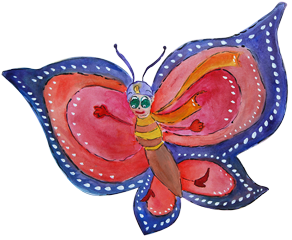Psychology

We are very happy that in our centre competent psychologists give children and adults an efficient and timely help. Oftentimes, we, the workers, go to them for advice too. Thank you, Alexander and Galya!

Alexander Kolmanovsky,
a volunteer, a psychologist, a host of the seminar “Behaviour in problematic situations”:
Quite a number of colleagues and volunteers work in “Maria’s Children”. They all are very enthusiastic and committed to their work – only people like them can and will work here. Among the volunteers who help in taking care of the orphans, there are also some guys who used to study here before. All these people have their own life experiences, thoughts of how to treat children, and of what to teach them. The psychological seminar “Behaviour in problematic situations” is designed to bring together these various ideas and to develop the general attitude.
The main aim of the seminar is to help the attendees develop a psychological view on problems of human behaviour and relationships, to better understand what is happening to our children, partners, and ourselves. The seminar discusses the following issues:
-substantial interpretation of human behaviour. What is behind the various displays of our partners (aggression, detachment, disobedience, complaints etc.);
-reasons for the inward comfort/discomfort;
-shaping positive self-acceptance
-self-sentiment of a person in society: the reasons for the sense of self-confidence or uncertainty;
-personal peculiarities of the people of different psychological types;
-projection of the received notions on various patterns of human relationships: children-parents, nears and dears etc.
We try to say that no matter how badly a person behaves, how miserable he or she looks, people’s behaviour does not show their character, it shows their emotional state. They are not bad, they feel bad. Such displays of aggression, demonstration or ill will are signs of inward discomfort, and not a social position that is taken deliberately . Sometimes it is very hard for us to see someone’s negative behaviour this way, especially when this someone is us. When we are criticized and ignored– a wave of protest arises inside us. And we feel a pressing need to give vent to all our feelings, to give them a piece of our mind. At this moment it is hard to think about the person’s inner state or his reasoning, few think about the consequences of their protest…
There is a way to make it easier. This way is very old, but still extremely effective: just to imagine, how I would like to be treated. Here all people agree: not a single “I” would want to be punished, screamed at, and criticized. It would be considered not only wrong, but unfair too. What any, even guilty “I” would consider to be fair? Understanding, forgiveness and support. And “I” would realize that it would not spoil me; facing such support, “I” would not think that “I” should misbehave any further. Our charges (both children and adults) really need support, understanding and sympathy too. It does not spoil them either. They always need it, but most of all – when it is especially hard for us, i.e. when the child broke something, got a low mark, was caught lying or stealing…
Of course, a child likes being treated well by an adult. They like when adults play, watch films or go shopping with them. But in such cases it is not difficult to be well-wishing, that is why our goodwill seems not so significant and ‘therapeutic’. Children feel really safe and accepted only when it is especially hard for us to feel sympathy for them – in problematic situations.
Such understanding is extremely important to people working with children. Without it, a teacher who reacts negatively to the charge’s misbehavior only worsens his or her trouble. The same understanding can be very effective for making better a teacher’s state as well. Indeed, if the ill will of a person is a result of his/her emotional state, and not of the negative attitude towards people, then it means that when I was criticized, punished, laughed at – it was not a result of me being wrong, but it was though the emotional state of the person who criticized me (my own parent, teacher, friend).
A person who constantly tries to look at his/her charges and himself/herself this way, begins to feel better, feel growing confidence, and relationships with the people around start to improve.
During the seminar many other sides of this problem are discussed as well. The attitude towards interaction with children that is described above by no means suggests permissiveness and connivance. Relationships with children that are normally established include a big amount of inevitable restraints, compulsion etc. In itself they are not traumatic. The difference between substantial compulsion and punishment should be established. Punishment is not connected with the essence of a problem, it is aimed at hurting child’s feelings, at making it feel bad – expecting (often instinctively) that when a child wants to misbehave, it will remember, how bad it felt the previous time, and this would stop it (which is too naive and almost never works!). Substantial compulsion, on the contrary, is aimed only at the essence of a problem, and is accompanied by great efforts not to hurt the child.
Children may be woken up by someone saying: “I’m not gonna waste my last nerve on you. You either get up this minute or I leave and you will have no breakfast!” Or by someone saying something totally different: “Baby, I’m so sorry to wake you up, you’ve been sleeping so sweet! If I could decide, , you’d sleep half a day. But what can I do, you have to get up and go to school”. We have the same task: we are waking up a child. But in the first case through punishment, in the second one – though sympathizing.
The seminar involves demonstrating and discussing various video-episodes, feature film fragments, animated films and other sources.

